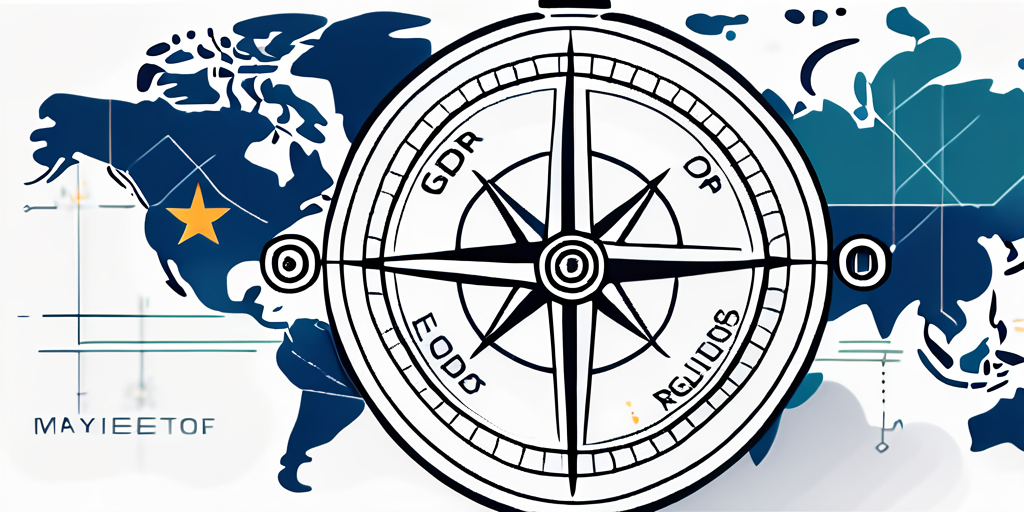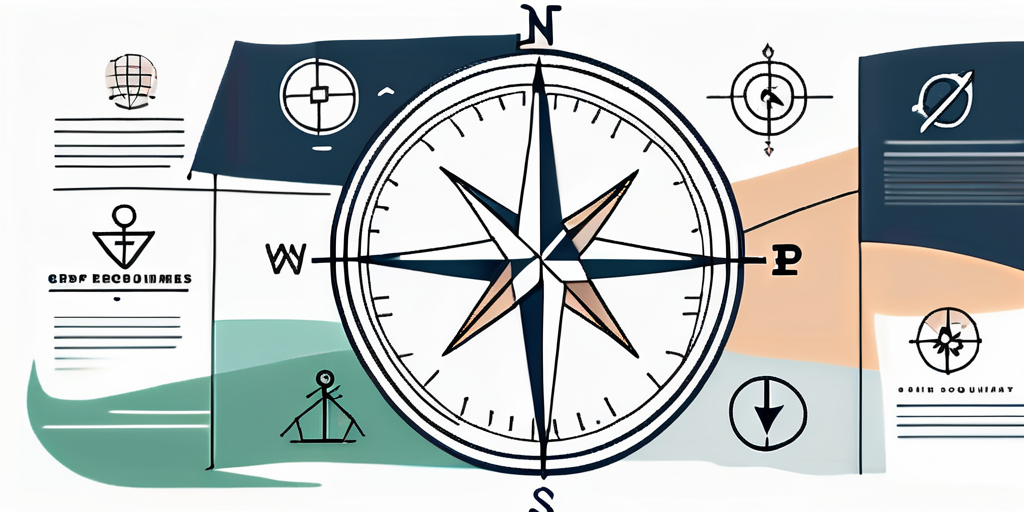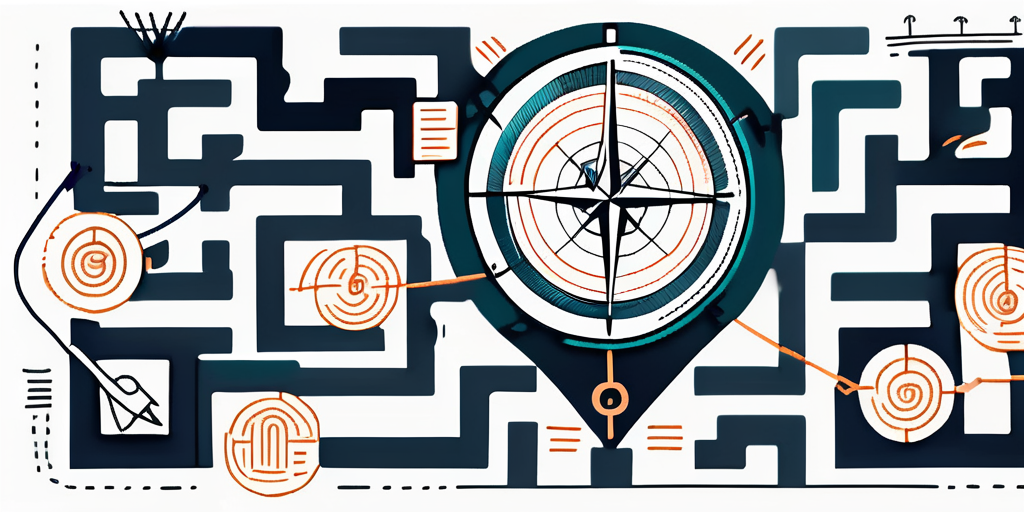Navigating GDPR in Nonprofit Marketing: A Comprehensive Guide

In today’s digital age, data protection has become a top priority for organizations across all sectors. Nonprofit organizations, in particular, need to be mindful of the General Data Protection Regulation (GDPR) when it comes to their marketing efforts. Understanding and complying with GDPR requirements is crucial for nonprofits to maintain trust and build meaningful relationships with their supporters. In this comprehensive guide, we will explore the basics of GDPR, its impact on nonprofit marketing, key requirements, and strategies for implementing GDPR compliance.
Understanding the Basics of GDPR
What is GDPR?
GDPR stands for General Data Protection Regulation, which is a regulation implemented by the European Union (EU) to protect the privacy and personal data of EU citizens. It applies to any organization that processes personal data of individuals within the EU, regardless of the organization’s location.
GDPR was introduced to address the growing concerns surrounding data privacy and security in the digital age. With the rapid advancement of technology and the increasing reliance on personal data for various purposes, it became crucial to establish a comprehensive framework that would govern the collection, storage, and use of personal information.
The regulation aims to give individuals greater control over their personal data and ensure that organizations handle it in a lawful and transparent manner. It sets out specific requirements for data controllers and processors, such as obtaining consent, providing clear privacy notices, and implementing appropriate security measures.
Why is GDPR Important for Nonprofits?
Nonprofit organizations heavily rely on collecting and processing personal data for marketing purposes. GDPR compliance is essential for nonprofits because it ensures that they handle personal data in a lawful and transparent manner, giving individuals control over their data and safeguarding their privacy rights.
Nonprofits often engage in various activities that involve the collection and use of personal information, such as fundraising campaigns, donor management, and targeted marketing. With GDPR in place, nonprofits must be diligent in obtaining proper consent from individuals before collecting their data and clearly communicating how it will be used.
Moreover, GDPR requires organizations to implement appropriate security measures to protect personal data from unauthorized access, loss, or disclosure. This means that nonprofits must invest in robust data protection systems and regularly review their practices to ensure compliance with the regulation.
By adhering to GDPR, nonprofits can build trust with their supporters and stakeholders. Demonstrating a commitment to data protection and privacy not only helps organizations comply with the law but also enhances their reputation and credibility. Nonprofits that prioritize data privacy are more likely to attract and retain donors, volunteers, and beneficiaries who value their commitment to ethical and responsible practices.
The Impact of GDPR on Nonprofit Marketing
Changes in Data Collection Practices
GDPR (General Data Protection Regulation) has had a profound impact on data collection practices for nonprofit organizations. In order to comply with the new regulations, nonprofits are now required to obtain explicit consent from individuals before collecting and processing their personal data. This means that organizations must clearly communicate the purpose of data collection and provide individuals with the option to withdraw their consent at any time.
Furthermore, GDPR mandates that nonprofits should only collect data that is necessary for the intended purpose. This means that organizations must carefully evaluate their data collection practices and ensure that they are only gathering information that is directly relevant to their mission and objectives. By doing so, nonprofits can minimize the amount of personal data they hold, reducing the risk of data breaches and unauthorized access.
The Influence on Donor Relationships
Donor relationships are the lifeblood of nonprofit organizations, and GDPR has significant implications for maintaining strong connections with supporters. Under the new regulations, nonprofits must communicate clearly and transparently about how donor data will be used. This means providing donors with a comprehensive understanding of how their personal information will be processed and ensuring that they have the opportunity to manage their data preferences.
Building trust through GDPR compliance is crucial for sustaining long-term relationships with donors. Nonprofits must demonstrate their commitment to data protection and privacy by implementing robust security measures and adhering to the principles outlined in the regulation. By doing so, organizations can instill confidence in their donors, reassuring them that their personal information is being handled with the utmost care and respect.
Moreover, GDPR also presents an opportunity for nonprofits to enhance their donor relationships. By being transparent about data collection and processing practices, organizations can foster a sense of trust and accountability. Donors are more likely to support organizations that prioritize their privacy and demonstrate responsible data management. Nonprofits can leverage GDPR compliance as a way to differentiate themselves and attract new donors who value ethical and transparent practices.
Key GDPR Requirements for Nonprofits
Consent and Transparency
Obtaining explicit consent is a fundamental requirement under GDPR. When collecting personal data for marketing purposes, nonprofits must clearly inform individuals about the purpose, lawful basis, and any third-party recipients of the data. Consent should be freely given, specific, informed, and unambiguous, and individuals should have the right to withdraw their consent at any time.
Transparency is a crucial aspect of GDPR compliance for nonprofits. It goes beyond obtaining consent and extends to how organizations handle personal data. Nonprofits should provide individuals with clear and easily understandable privacy notices that outline how their data will be used, who will have access to it, and for what purposes. By being transparent, nonprofits can build trust with their supporters and demonstrate their commitment to protecting personal information.
Data Minimization and Purpose Limitation
Nonprofits must ensure that the personal data they collect is necessary for the intended purpose. They should only collect data that is relevant, limited to what is necessary, and retain it for as long as required. By implementing data minimization and purpose limitation practices, nonprofits can protect individuals’ privacy and reduce the risk of data breaches.
Data minimization involves assessing the types of personal data collected and determining whether all of it is truly necessary. For example, if a nonprofit is organizing a fundraising event, it may only need to collect names, contact information, and donation amounts. Collecting additional information, such as birth dates or social security numbers, may not be relevant or necessary for the event’s purpose and should be avoided to minimize risk.
Purpose limitation refers to using personal data only for the specific purposes for which it was collected. Nonprofits should clearly define the purposes for which they collect data and ensure that it is not used for any other unrelated activities. This helps maintain the trust of individuals and ensures that their data is not misused or shared without proper consent.
Implementing GDPR Compliance in Your Nonprofit
Steps to Achieve GDPR Compliance
Complying with GDPR may seem overwhelming, but breaking it down into steps can simplify the process. Start by conducting a thorough audit of your organization’s data processing activities to identify any gaps in compliance. This audit should include a review of all personal data collected, stored, and processed by your nonprofit. It’s important to assess whether you have obtained proper consent for data collection and if you have the necessary legal basis for processing personal data.
Once you have identified any compliance gaps, it is crucial to raise awareness among your staff about GDPR requirements. This can be done through training sessions and workshops that educate employees on the importance of data protection and privacy. It is essential for everyone in your organization to understand their role in ensuring GDPR compliance and the potential consequences of non-compliance.
After raising awareness, it is time to implement policies and procedures to ensure ongoing compliance. This includes establishing clear guidelines on how personal data should be handled, stored, and shared within your nonprofit. It is also important to designate a Data Protection Officer (DPO) or someone responsible for overseeing GDPR compliance within your organization.
Regularly reviewing and updating your data protection practices is another critical step in achieving and maintaining GDPR compliance. This involves conducting periodic assessments to ensure that your nonprofit is still in line with GDPR guidelines. It is important to stay up to date with any changes in the regulations and adjust your practices accordingly.
Tools and Resources for Compliance
Various tools and resources are available to assist nonprofits in achieving and maintaining GDPR compliance. Consider using data protection software and management systems to streamline your data processing activities. These tools can help automate processes such as obtaining consent, managing data breaches, and handling data subject requests. By implementing such tools, your nonprofit can ensure that personal data is processed securely and in accordance with GDPR requirements.
Staying updated with industry news and developments is also crucial for maintaining GDPR compliance. Regularly check for updates from data protection authorities and industry organizations to ensure that you are aware of any changes or new guidelines. Additionally, consulting legal professionals specializing in data protection can provide valuable insights and guidance on best practices for GDPR compliance.
Remember, achieving GDPR compliance is an ongoing process. It requires continuous effort and dedication to protect the personal data of individuals. By following the steps outlined above and utilizing the available tools and resources, your nonprofit can navigate the complexities of GDPR and ensure that it remains compliant with the regulations.
Overcoming GDPR Compliance Challenges
Common Obstacles in GDPR Compliance
Compliance with GDPR poses several challenges for nonprofits. Some common obstacles include understanding complex legal requirements, obtaining consent from individuals, managing and securing large volumes of data, and ensuring compliance across multiple systems and departments. Overcoming these challenges requires a strategic approach and a commitment to prioritizing data protection.
Strategies to Overcome Compliance Difficulties
To overcome compliance difficulties, nonprofits can educate their staff about GDPR requirements and provide training sessions to ensure a thorough understanding of data protection practices. They can also seek external expertise to assess their processes and implement necessary changes. Regular internal evaluations and audits can help identify areas for improvement and ensure ongoing compliance.
By navigating GDPR effectively, nonprofits can build stronger trust with their supporters and ensure ethical and responsible data handling practices. Compliance with GDPR is not just a legal obligation but also an opportunity for nonprofits to demonstrate their commitment to respecting privacy rights and fostering long-term relationships with their stakeholders. Stay informed, prioritize data protection, and emerge as a trusted steward of personal data in the nonprofit marketing landscape.
Ready to ensure your nonprofit’s marketing strategies are GDPR-compliant while maximizing your digital presence? BlueWing is here to help. As a specialized paid media management agency for nonprofits, we understand the intricacies of GDPR and how to navigate them effectively within your paid social media and search campaigns, including the Google Ad Grants program. With BlueWing, you’ll receive weekly updates and benefit from our 8+ years of experience in outperforming industry benchmarks. Contact us today to amplify your impact and build a sustainable growth engine for your organization.





